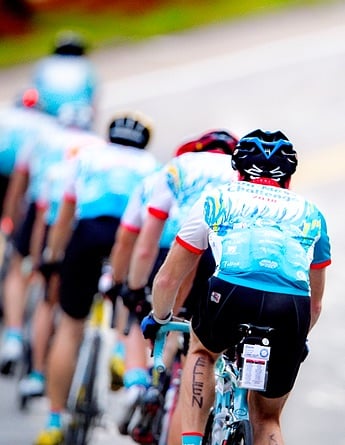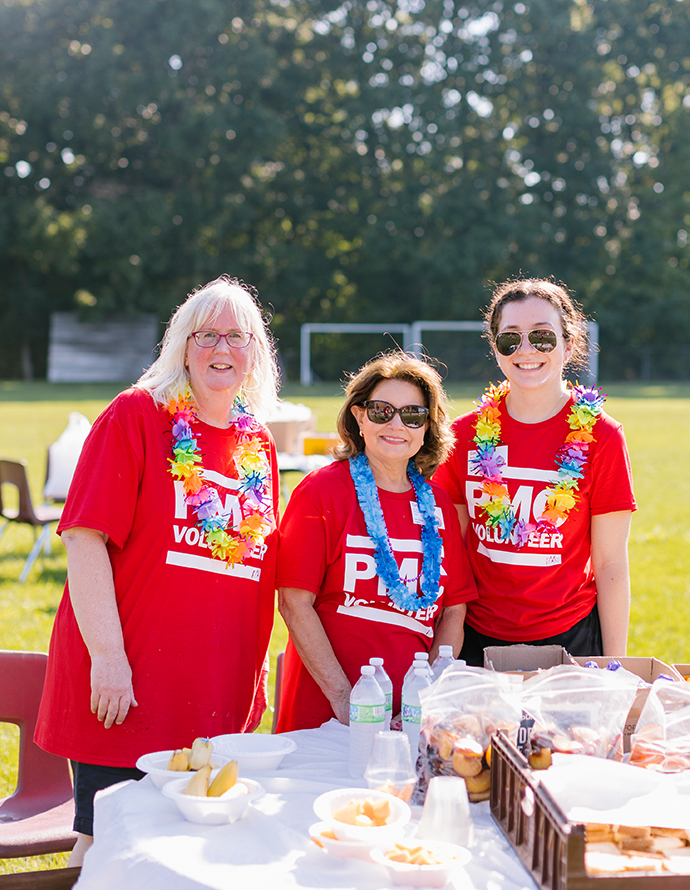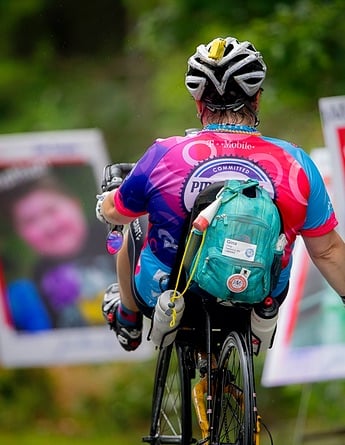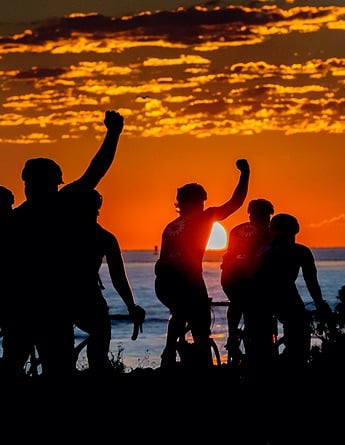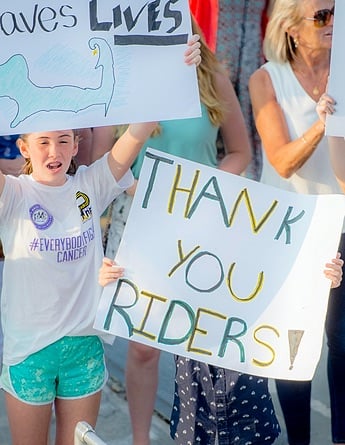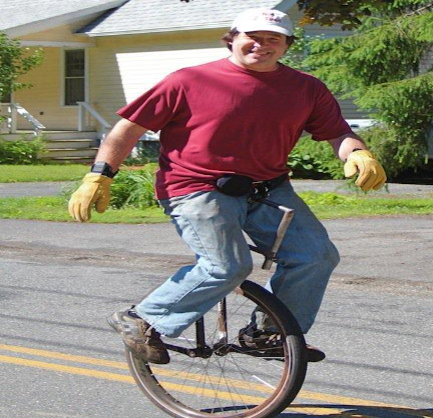A mother's love is inspiring. For Billy Starr, his mother's love inspired the Pan-Massachusetts Challenge. Read his story below. In celebration of Mother's Day, we encourage you to share your story by commenting below, throughout the month of May, about the mother in your life who will propel you forward during PMC weekend.
The Mother Behind the Man
By Billy Starr Some people can look back on their lives and know exactly how they got to where they are standing. I am one of them. What I do today -- and who I have become -- can be traced back to the loss of my mother. I had just graduated college and returned home to walk in on my father weeping in his bedroom. It was the first time I ever remember seeing my father cry. My mother had been diagnosed with melanoma and the prognosis was not good. My mother was one of those people who made everything beautiful. She was the matriarch of our family and while her childhood was both emotionally and materially unstable, she made sure to provide a supportive and loving environment for my brother and me. Betty Finkel Starr was raised in a luxurious apartment on Park Avenue, and lived a good life on the upper Westside of New York in the 1930's. She had a Harvard educated father and University of Vermont educated mother. That life however, came crashing down with the stock market that left the family penniless. With nowhere to go, they moved into her aunt's maid chambers, and with no money to speak of, my mother was the only woman in her family to not receive a college education.
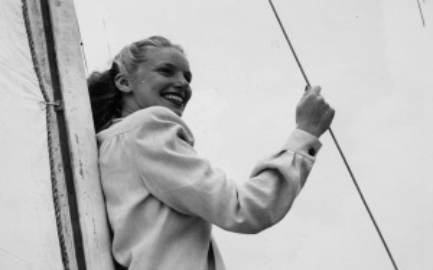
Betty Starr
She went to work, but her external and internal beauty soon got her accepted at the Powers Agency as a model, where she worked until she met my father, Milton Starr. Then she became my mother. My mother always greeted me with a hug and a smile, and encouraged me to be who I was going to be, whoever that was. She volunteered with disabled veterans and their art demonstrated that life wasn't always pretty or easy. They adored her, and our house was filled with gifts, portraits and sculptures that the veterans made for her, using utensils and brushes in their teeth.
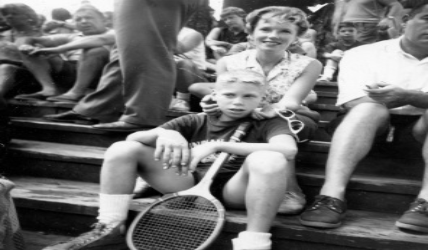
Billy and Betty
At that time of her death I was a drifty liberal arts kid and was just about the hike the Himalayas without a care in the world. After getting the news of her diagnosis, I stayed close to home and visited her in the hospital three times a day. She died in 1974, at 49-years-old.
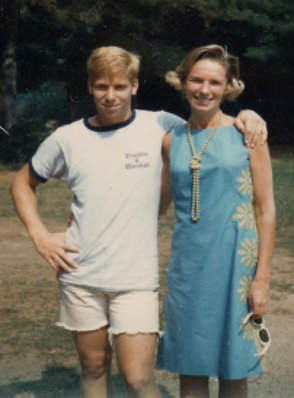
Mom and son
Our family unit changed after that. I was floundering. I drove a truck, got a master's degree, bounced around from job to job, nothing soothed my soul. My life needed to matter and I wanted to make a profound statement in her honor. I had a sense there were people out there like me who wanted to give back. In the summer of 1980, I coordinated a two-day charity bike ride that would span across Massachusetts. I called it the Pan-Massachusetts Challenge and gave out flyers on bike paths alerting others so they'd join. That first year, there were 36 cyclists and everything that could go wrong did. We all got lost and ran out of food. But when all was said and done, we donated $10,200 to the Jimmy Fund and everyone was talking about next year. While most people looked at it as the grown up equivalent of a lemonade stand, I saw it at as something bigger. I realized I had tapped into a concept - sports-oriented philanthropy - that wasn't all that familiar or readily available back then. The people who signed up to ride the PMC were seeking to fulfill a greater obligation to both society and themselves. The PMC channeled our need to be a part of something greater than ourselves. When I created this event, I worked out of my father's house. For three months, I slept in a tent in his backyard. My office was my father's dining room table—and the PMC office remained there for 15 years before I rented office space. It was 10 years before I hired another full time staffer. Though I worked from my dad's dining room out of necessity, it turned out to be a special blessing for me. My dad had always been a huge part of my life. Both of us were deeply affected by my mother's death. My dad never questioned what I was doing or why — though plenty of other people did. That support was his gift to me. My dad passed away eleven years ago. He never got to see the PMC donate $35 million in one year – or $270 million over 30 years – but at the time of his death, the PMC had grown into a widely known institution, and we took pride in that together. When I look back at the years that have gone by and how the organization has grown I realize that I was recreating the security blanket of my family. Each summer, when I ride among the 5,000 cyclists who cycle to raise money for cancer research, I think about my mother and what it would have meant to her. I would say that the PMC is my gift to her, but I think in the end it has become her gift to me.



